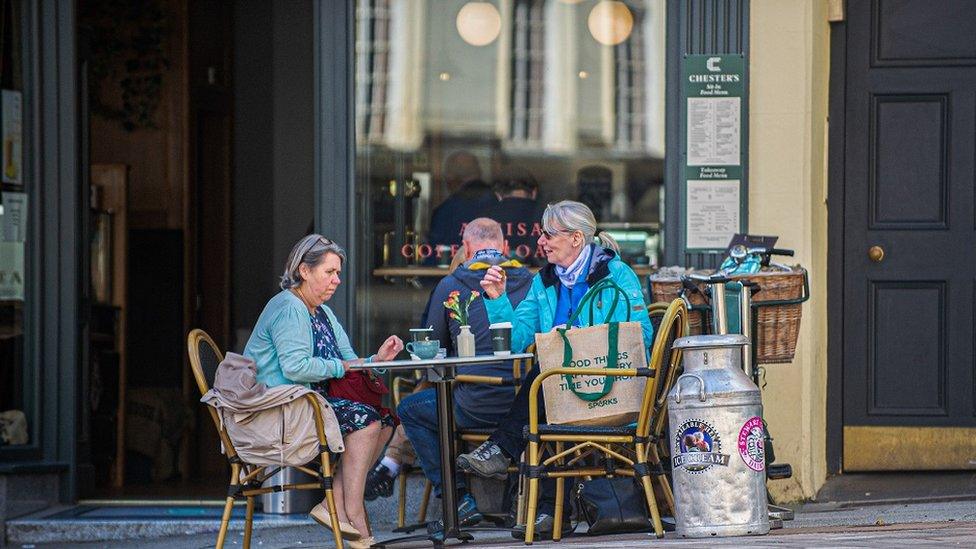Covid in Scotland: Shutters come down on pubs and restaurants in central belt
- Published
“Last orders, folks!” - Pub-goers in Glasgow enjoy a final pint
Pubs and restaurants across the central belt of Scotland have closed for the last time in at least two weeks.
After they shut their doors at 18:00, they will not reopen until 25 October at the earliest.
It comes as the Scottish government publishes details, external of a £40m support package for businesses forced to close due to Covid restrictions.
There will be a tightening of rules across the rest of the country but licensed premises can remain open.
Police Scotland said additional officers would be deployed to ensure premises comply with restrictions.
A protest against the measures took place in Glasgow on Friday evening, with bar workers dumping a large pile of ice outside the City Chambers.
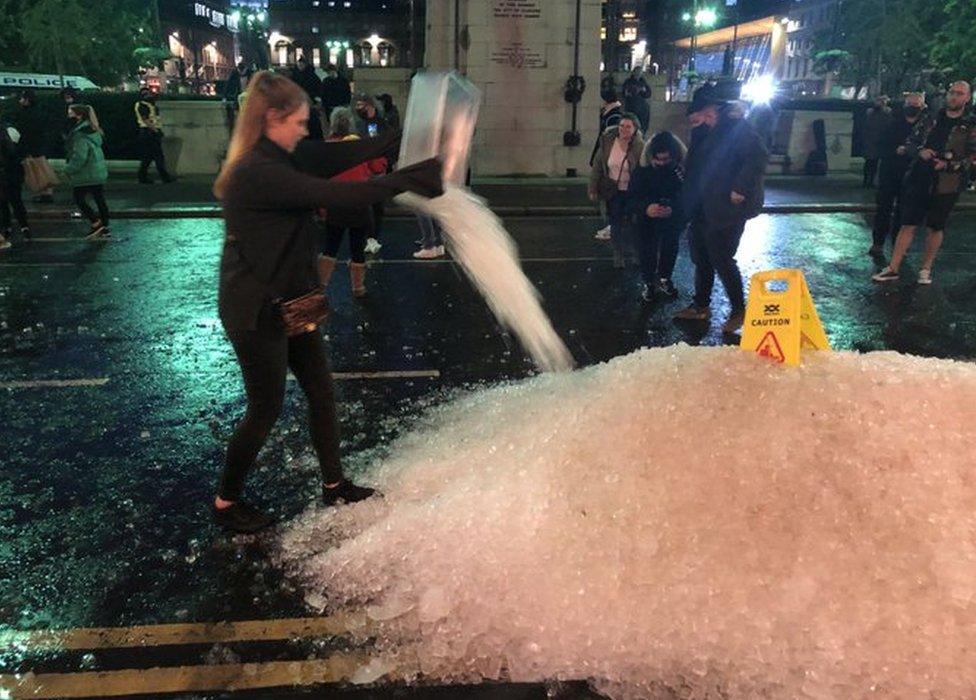
Bar workers showed their contempt for the new rules
A letter posted to the Glasgow Bartenders Club said venues in Edinburgh were also leaving the remaining contents of their ice machines outside the Scottish Parliament.
The new rules come into force as six further Covid deaths were confirmed by the first minister in her daily briefing.
She said 1,246 positive tests had been recorded and the number of Covid patients in hospital was continuing to increase. "The restrictions which come into force today are significant, but the case numbers we have seen in recent weeks - including, increasingly, the figures for people being hospitalised - show why they are necessary," Ms Sturgeon said.
"We have to stop the virus from spreading further. And having already restricted meetings between households in each other's homes, the most important additional step we can take is to restrict meetings in bars and restaurants."
Financial support
The Scottish government plans to help businesses with a £40m package which includes support for employment, a cash grant for each business and a discretionary fund for local authorities.
Ministers were waiting to hear details of the UK's plans to help affected employees before laying out the full details of their scheme.
Economy secretary Fiona Hyslop outlined the details of the fund on Friday evening:
One-off grants of up to £3,000 for businesses required to close by regulations
Hardship fund with grants of up to £1,500 for businesses that remain open but are directly impacted, such as suppliers
£9m to help employers pay 20% of the wages of furloughed workers
£11m discretionary fund to help businesses that do not fall into the above categories, such as soft play centres
Chancellor Rishi Sunak has said people who work for UK firms forced to shut by Covid restrictions will get two-thirds of their wages paid by the government.
He also announced increased grants for business in England - a move the UK government says will lead to £700m additional funding for Scotland.
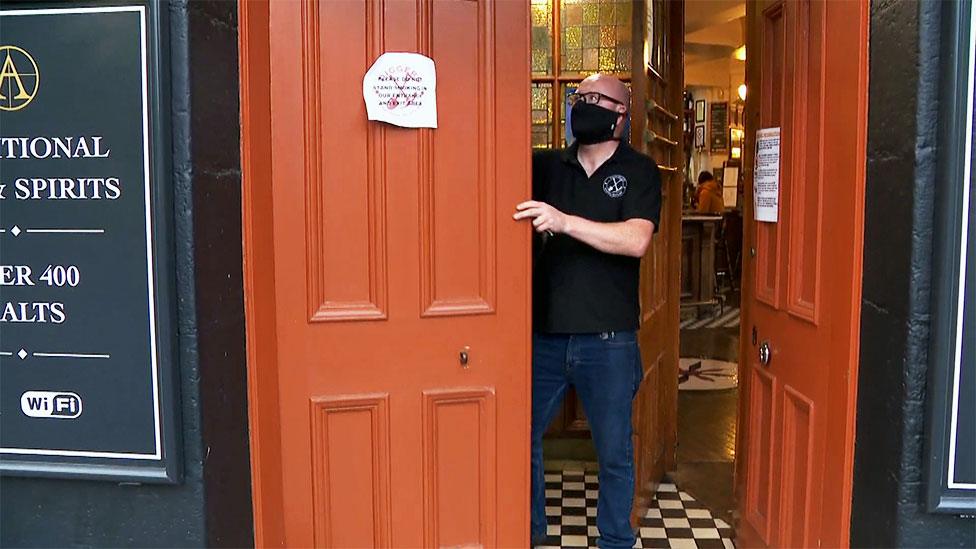
Pubs across the central belt of Scotland closed their doors at 18:00
The scheme is due to start on 1 November - a week after the latest Scottish restrictions are due to end. But employers should be able to use the existing furlough scheme until the end of October.
Scotland's Finance Secretary Kate Forbes welcomed the move but called for more clarity on "what it covers in terms of health, transport and business support".
The measures were described as "good news" by the Scottish Chambers of Commerce.
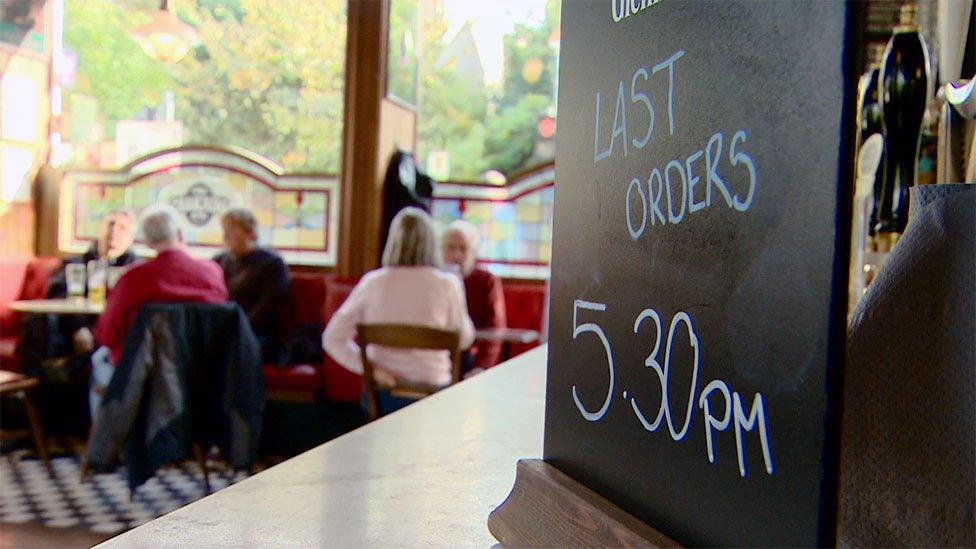
But its chief executive, Liz Cameron, warned they were not enough to offset the impending loss of trade and jobs.
"We need governments to focus on enabling business to continue to freely function, and manage our way through this situation," she said. "This stop-start approach is damaging for business."
Scottish Tory leader Douglas Ross described the funding increase as "seismic" while his colleague, Scottish Secretary Alister Jack, said it provided a "vital safety net".
'A significant impact on transmission rates'
About 3.4 million people in five health boards - Greater Glasgow and Clyde, Lothian, Lanarkshire, Forth Valley and Ayrshire and Arran - are subject to the strictest restrictions.
Licensed premises will be closed for 16 days although they can still serve takeaways.
Cafes with a licence have been told they can remain open as long as they do not serve alcohol but there is confusion over what constitutes a cafe.
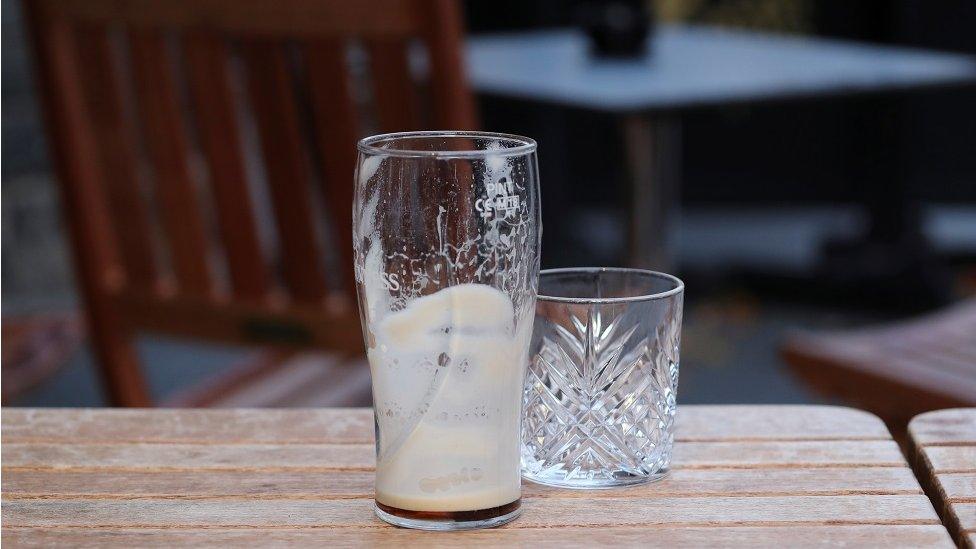
Hospitality venues in the rest of Scotland will be allowed to open, but will only be permitted to serve non-alcoholic drinks and food indoors between 06:00 and 18:00.
Licensed premises in these areas will still be able to serve alcohol in outdoor areas, such as beer gardens, up to the 22:00 curfew introduced in September.
Ms Sturgeon said: "These measures still allow for some social contact in cafes during the day. And they do not prevent people from taking half-term holidays which have already been booked, or from going ahead with weddings which have already been planned.
"But for a period of just over two weeks, they will remove some of the major opportunities the virus has to spread. That should have a significant impact on transmission rates."
Meanwhile, Police Scotland revealed that in the week up to 4 October officers broke up 271 illegal house parties, issued 106 fines and made 18 arrests.



Are you a pub or restaurant worker in central Scotland? Share your experiences by emailing haveyoursay@bbc.co.uk, external.
Please include a contact number if you are willing to speak to a BBC journalist. You can also get in touch in the following ways:
WhatsApp: +44 7756 165803
Tweet: @BBC_HaveYourSay, external
Please read our terms & conditions and privacy policy
If you are reading this page and can't see the form you will need to visit the mobile version of the BBC website to submit your question or comment or you can email us at HaveYourSay@bbc.co.uk, external. Please include your name, age and location with any submission.
- Published9 October 2020
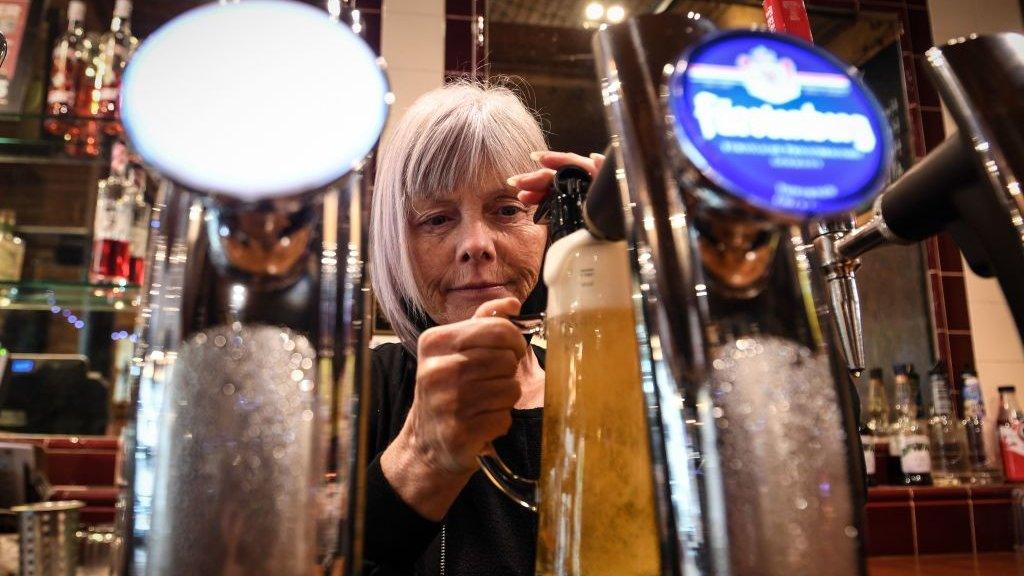
- Published8 October 2020
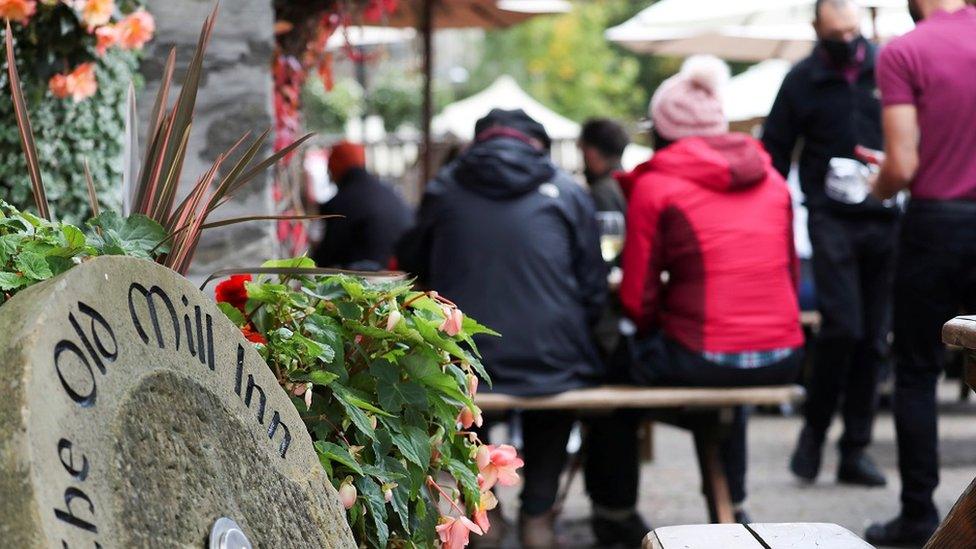
- Published1 July 2022
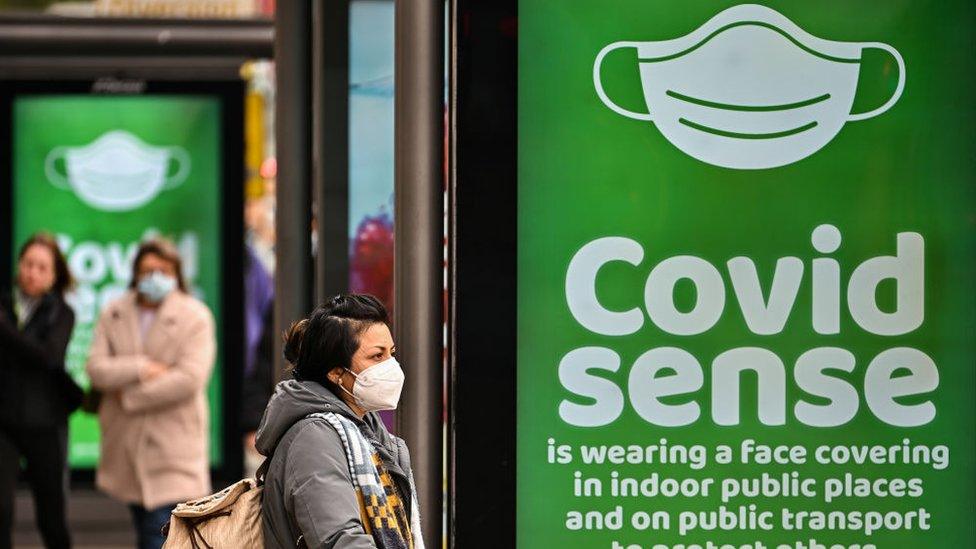
- Published8 October 2020
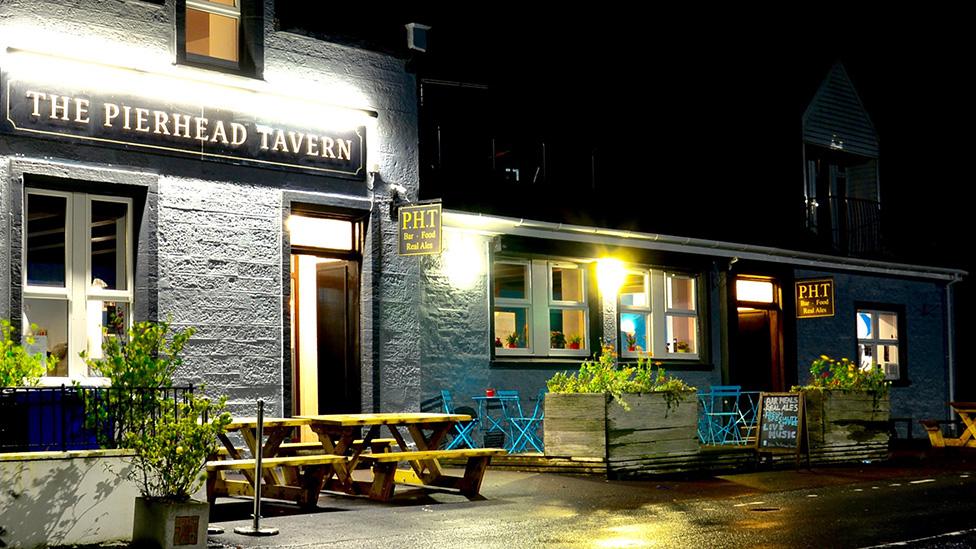
- Published8 October 2020
